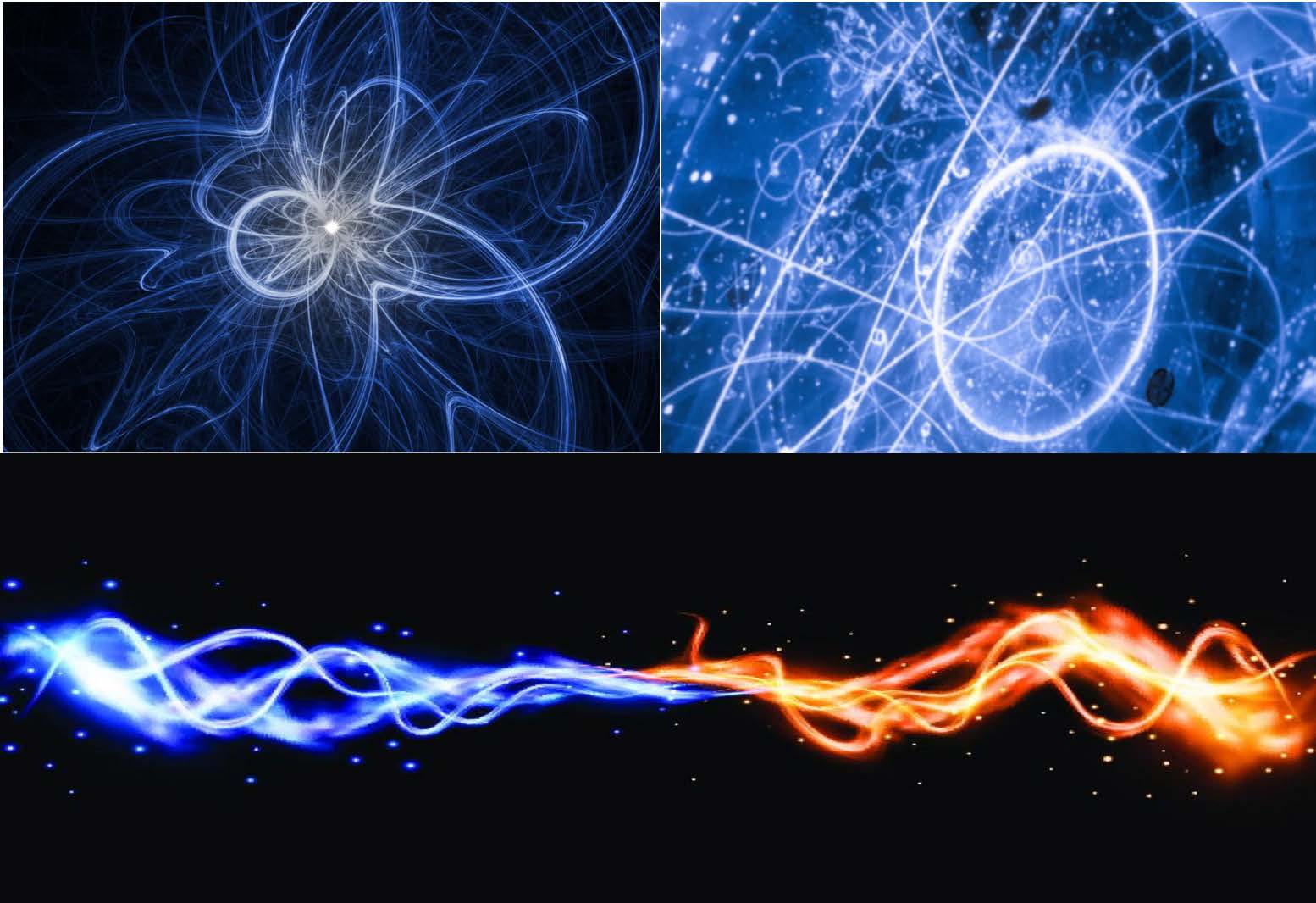Program

Top: Neutrino interactions and neutrino-atom interactions. Bottom: Collision of two "waves"
The focus of the proposed program is on so-called kinetic equations, describing the evolution of the of many-particle interacting systems. These models have the form of statistical flows, with their solutions being either a single or multiple point probability density functions or measures, supported in a space of attributes. The attributes are problem-dependent and can be molecular velocity, energy, opinion, wealth, and many others. The flow then predicts the evolution of the probability measure in time, position in space, and the interchanging of the particles' states by the transition probability.
Probably the most classical kinetic equation is the Boltzmann equation which describes the evolutions of the phase-space density function for a dilute gas under binary molecular collisions. Other well-known classical kinetic models include the Landau equation, Vlasov equation for plasmas or other systems, Fokker-Planck equations or kinetic formulations of various macroscopic or hyperbolic systems.
In recent years, the successes of kinetic theory gave rise to an rapidly increasing variety of mathematical models beyond physics to applications in life sciences, social sciences, economy. Even more recently fascinating connections between kinetic theory and some aspects of data science have emerged.
Kinetic theory has strong and fascinating interactions with a large variety of other fields, including statistical mechanics, stochastic processes, dynamical systems...
The program will strive to give an overview of the novel mathematical tools used in kinetic theory through a broad range of classical and more recent applications.
Download a PDF flyer to share with your networks
Bibliography
Keywords and Mathematics Subject Classification (MSC)
Tags/Keywords
Kinetic theory
collisional models
instabilities
turbulence
many-particle and multi-agent systems
stochastic systems
mean-field games
mean-field equations
35Bxx - Qualitative properties of solutions to partial differential equations
35Lxx - Hyperbolic equations and hyperbolic systems {For global analysis, see 58J45}
70Fxx - Dynamics of a system of particles, including celestial mechanics
70Lxx - Random and stochastic aspects of the mechanics of particles and systems
82Dxx - Applications of statistical mechanics to specific types of physical systems
| August 21, 2025 - August 22, 2025 | Pathways Workshop: Kinetic Theory & Stochastic Partial Differential Equations |
| August 25, 2025 - August 29, 2025 | Introductory Workshop: Kinetic Theory & Stochastic Partial Differential Equations |
| October 20, 2025 - October 24, 2025 | Kinetic Theory: Novel Statistical, Stochastic and Analytical Methods |
